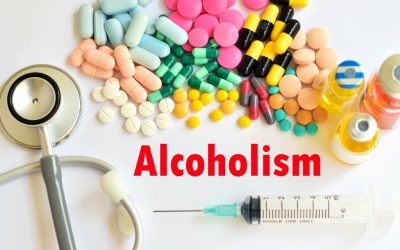Sober living
How to Safely Wean Yourself off Alcohol Dependency
Within just a month of not drinking, your body can begin to reap the benefits. Your liver can start to heal, your risks of heart disease https://www.biznisnovine.com/million-dollar-ideas-for-your-spas-health-and-beauty-logo-design/ and cancer go down, and you may begin to sleep better. By avoiding alcohol, you’re taking a big step toward improving physical health.
Understanding the Role of Alcohol Tapering in Treatment
- Delirium tremens (DTs) can begin 48 hours after your last drink and last up to five days.
- If you would like to explore aromatherapy, it’s important to first check with a doctor.
- While tapering off alcohol can be an effective self-treatment strategy, it’s important to note that what works for one person may not be safe for everyone.
- If the drink of choice is liquor, it is difficult to measure amounts and easy to binge drink.
- If you’re struggling to incorporate different relaxation techniques into your routine instead of alcohol, consider joining a support group.
Each individual’s journey to reduce alcohol intake will be unique, and these solutions should be adapted to fit personal circumstances and needs. It’s important to remember that tapering off alcohol is a significant change that requires commitment and support. Setting achievable goals and providing positive reinforcement upon reaching these https://www.micq.org/page.php?id=233 milestones is beneficial when creating or adjusting a taper schedule. The individual’s support system also plays a significant role in monitoring progress and encouraging adherence to the tapering plan. Adjustments should be made in consultation with a medical professional, particularly when medication-assisted treatment is indicated.
Addressing Severe Symptoms
Tapering off alcohol is a critical step for individuals dealing with alcohol dependence. This process involves gradually reducing alcohol intake over time, which can be a safer and more effective method than abruptly quitting. For those at risk for severe withdrawal symptoms, medically-supervised http://l2maxi.ru/?cstart=104&do=lastcomments detox is often the safest choice for beginning their sobriety or moderation journey. Others may discover after consulting with a doctor that it’s safe for them to quit alcohol cold turkey if they choose to. However, they may still decide that tapering down feels most achievable for them.
- Through these programs, our caring and dedicated staff can help you on your road to recovery.
- Having little to no access to alcohol can help you stop drinking.
- Tapering alcohol may be uncomfortable, and there may be subconscious triggers that stimulate the desire to drink alcohol.
- Through these interactions, you can gain insights, learn from others’ journeys, and find encouragement to stay sober.
- Quitting binge drinking may require different strategies than either tapering or cold turkey.
- However, here is a sample timeline of what the average person can expect.
When To Seek Medical Attention
This can be done by reducing the number of drinks, increasing time between drinks or choosing a weaker drink with a lower alcohol content. From addiction risks to mental health impact, find answers and seek support. If you experience a relapse, it’s important not to give up on your goals. Consider talking with a therapist or counselor to help identify triggers and develop strategies for avoiding future relapses. By acknowledging the need for change and understanding the benefits of tapering off, individuals can take the first steps toward achieving a healthier and alcohol-free lifestyle. For individuals looking to make a positive change in their relationship with alcohol, the first step is acknowledging the need for change.

Another significant challenge is the mental and emotional toll of tapering. Individuals may experience intense cravings, mood swings, and anxiety, which can be overwhelming and lead to relapse if not addressed appropriately. The slow nature of tapering requires patience and willpower, and without a strong support system, individuals may struggle to adhere to the taper schedule.

Common triggers for alcohol consumption may include social gatherings, stress, anxiety, loneliness, or certain locations. By recognizing these triggers, you can take proactive steps to avoid or manage them. For example, if attending parties or events is a trigger, you can choose to limit your exposure to such situations in the early stages of your recovery. Alternatively, you can bring a sober support person with you to provide encouragement and accountability. Many people struggle with alcohol addiction and want to quit but are unsure of how to do so safely.